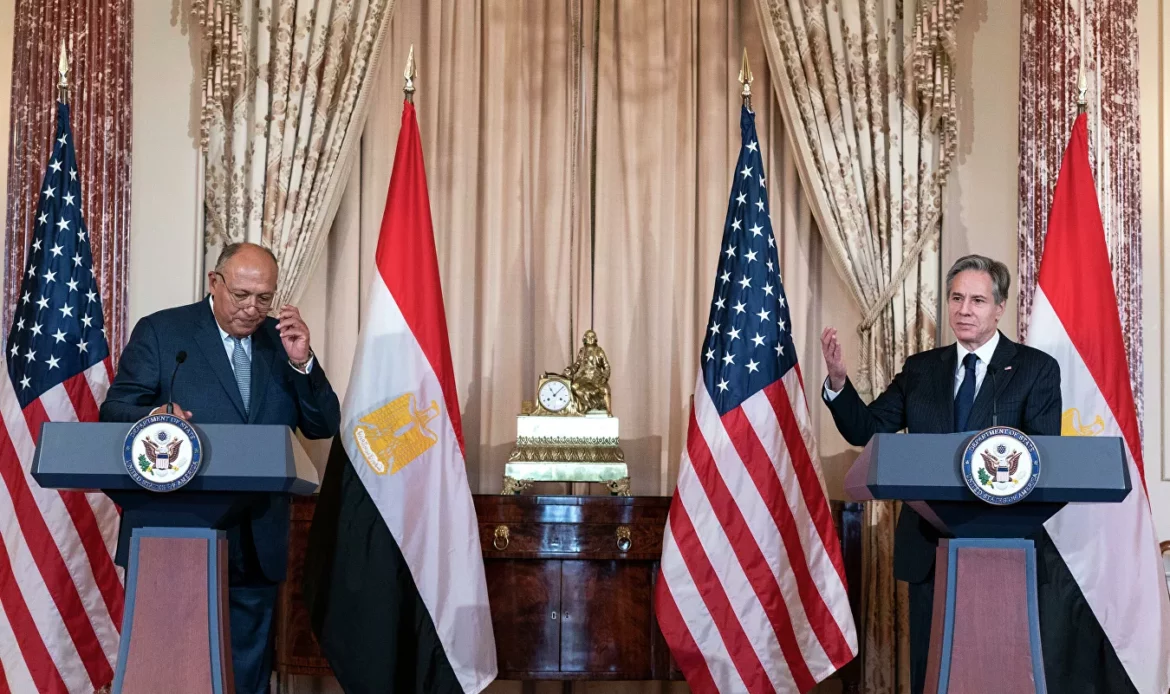Egypt has been the recipient of an average of $2 billion in annual military and economic aid from the US since 1979, when it signed a peace treaty with Israel. And an Egyptian professor claims that money has always been used as a tool to ensure political leverage.
At the end of January, the United States announced it would cut $130 million in annual economic assistance to Egypt, citing human rights concerns. Washington demands that Cairo stop persecuting political critics, journalists, women, and members of civil rights groups. It also urges to release several prisoners who hold US citizenship.
Consistent Foreign Policy?
Reports suggest this is the first time a secretary of state hasn’t issued a formal national security waiver to provide the aid, but Maged Botros, professor of political science and the dean of Egypt’s Helwan University, says that cutting economic assistance has been a “consistent policy of all US administrations”.
Egypt started receiving annual military and economic assistance from Washington (around $2 billion) in 1979, after it signed a peace treaty with Israel.
Much of its assistance – $1.3 billion – goes to the military. The economic package varies. In 1979 it stood at $258 million, by 2009 it was $150 million, and Botros says the numbers have been gradually declining ever since.
Cash as a Tool
The reasons for the reductions have varied over the years. Initially, they were connected to the world order having changed with the collapse of the Soviet Union and there no longer being a need to boost Egypt with so much cash to ensure its loyalty towards the West. Then came 9/11 and with it, the desire of Washington to reform all political systems in the Middle East. At the time, US decision-makers believed oppression was behind radicalism, and they wanted to eradicate it by introducing more human rights to the region. If local authorities dared to object to their policies, America knew which button to press. Very often it was the button of cash injections.
One of the most notorious cases was that of Saad Al-Din Ibrahim, a political activist and a professor at the American University in Cairo, who in 2002 was jailed for charges of fraud and receiving foreign funding. Washington demanded his release and when Cairo refused, economic assistance was reduced. Another example was seen in 2005, when Ayman Nour, another political activist and a presidential candidate, was prisoned on charges of forgery. Here again, the US did not hesitate to use its cash injections to punish Cairo for its “misbehaviour”, and this is also what they are trying to do now.
Won’t Knock Us to Our Knees
Although Botros says his country needs the cash Washington has been injecting to maintain the nation’s military equipment and technologies, he also claims the money “cannot bring Egypt to its knees”. One of the reasons for this is that Washington’s assistance constitutes only a mere two percent of Egypt’s GDP, and thus it doesn’t have the impact it had in 1979, when it was first granted. Another reason is the lessons Egypt has learned from the past and the fact that since 2014 it has chosen to diversify its military purchases, acquiring weapons not only from the US but also from Russia, France, Germany, and China.It was also the realisation that the US is dependent on Cairo not only because of its intelligence and military cooperation, but also because of the Suez Canal and the energy hub Egypt has recently become.
For now, Washington is playing it safe. While the $130 million will be deducted, the US okayed $2.5 billion in arms sale to Egypt at the end of January, and that might be an indication the White House understands the importance of Cairo, and it doesn’t want to lose it.
Source: Sputnik



